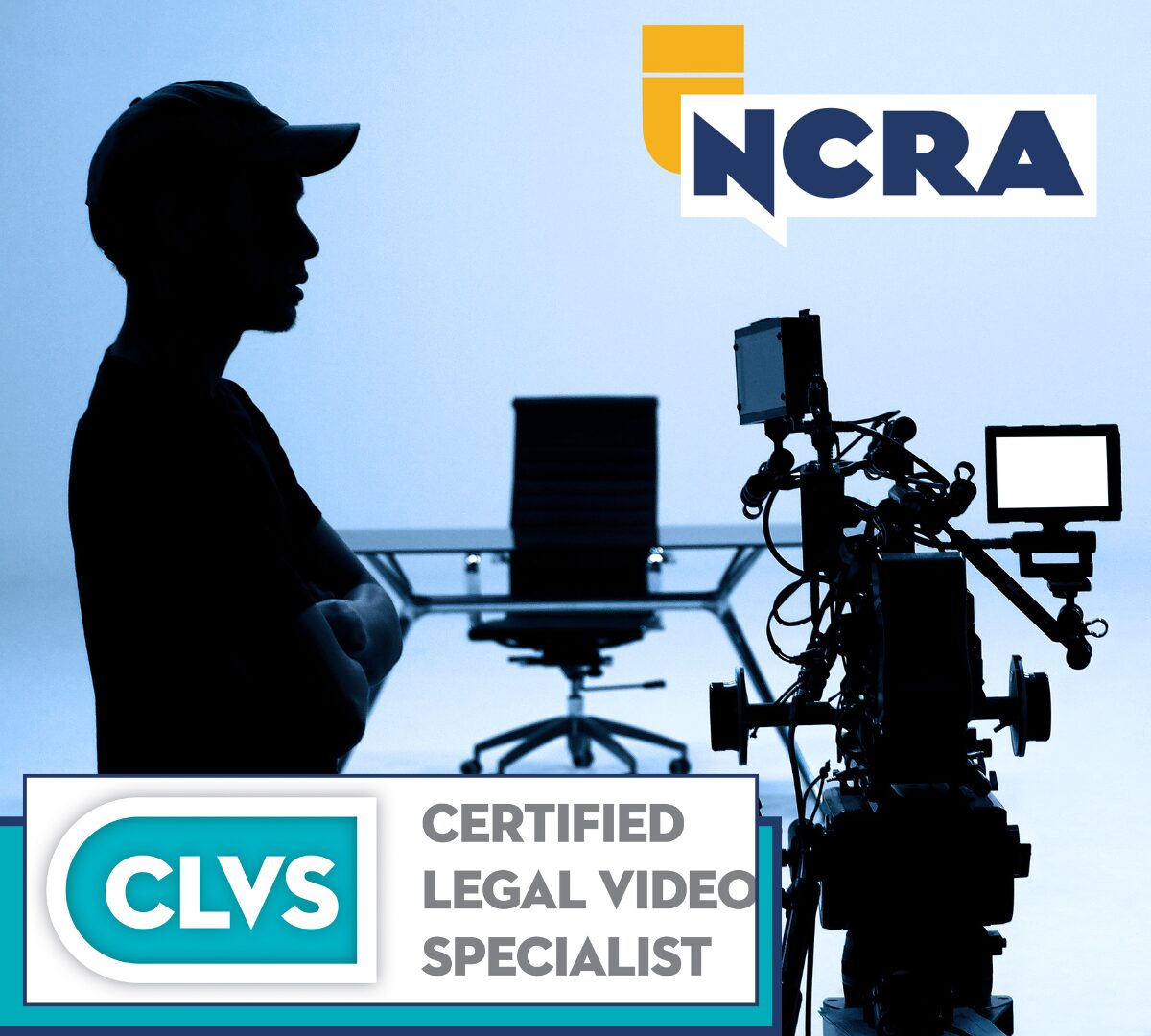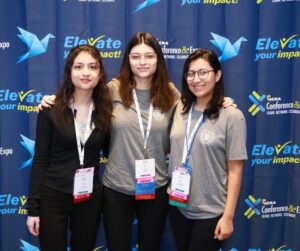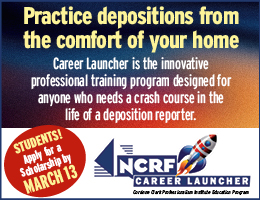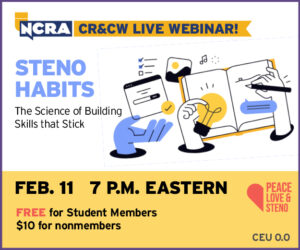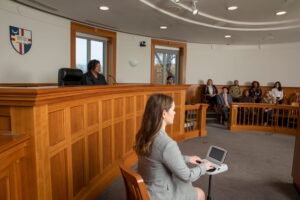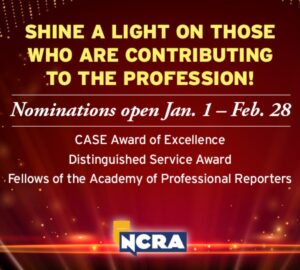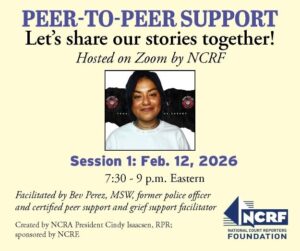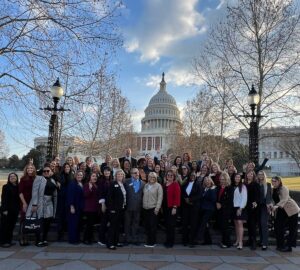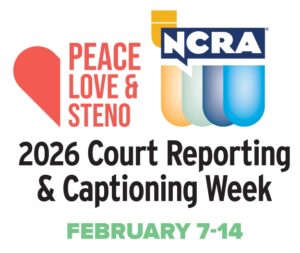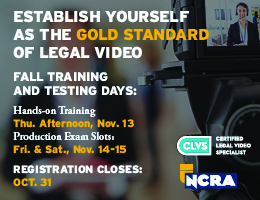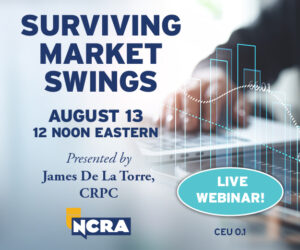By Andrea Kreutz
As Chair of the Certified Legal Video Specialist (CLVS) Council, I wanted to make sure that we are all working from the same facts. So I wanted to share the following dozen points NCRA members should know about NCRA’s CLVS program.
- We are NOT competitive with stenographic reporters. The stenographic record is the official record. We are not responsible for the transcript. Period.
- We advocate for the use of stenographic reporters, and we enjoy working with them. From the NCRA Leadership & Legislative Boot Camp to the Conference & Expo and at every deposition in between, we are on your side.
- We have passed a rigorous hands-on and written exam to obtain our valuable certification. The hands-on test is a mock deposition where candidates are tested on their knowledge of technology and procedure. The written exam is 100 questions testing candidates on their knowledge of the CLVS Guidebook.
- Yes, our equipment can be heavy. We prefer to set up and tear down on our own. We have a system and a place for everything. It does take time, and we need to be on-site earlier than the reporter. Please ask clients for the use of the room one hour early when scheduling. The worst feeling for us is when a room full of people are waiting on us to run cables.
- Our audio is stellar. With proper microphone placement, we hear everything. Don’t be afraid to ask for our audio. We are happy to provide it.
- We record a backup of our backup of our backup. Technology is great, but it can fail. We try to plan for every disaster scenario.
- We have attachments, dongles, connectors, chargers, batteries, and so on. We try to have every connection possible since we never know what might be needed. It is appreciated if details are provided about what services are needed. Hybrid? Picture-in-picture? Multi-camera? Syncing? Hybrid depositions require additional equipment. It’s nice to know it is needed prior to our arriving.
- We monitor everything we can during procedures. Is someone speaking too quietly? Is someone about to sneeze into their microphone? How loud is that plastic water bottle on the audio? Is someone about to walk off with our microphone?
- Yes, we watch for issues when syncing the transcript to the video. A great videographer will reach out to the reporter if they notice any differences. If we encounter lines in the transcript where there aren’t words to match, perhaps a quick off-the-record comment, we can have the software stay on the previous line until the next matching line is spoken.
- We will NOT sell the video or audio if a transcript hasn’t been ordered. We want to ensure the reporter is treated fairly.
- Our video recordings are NOT like school pictures. There are NO retakes. We might seem picky about the shot, but that’s because we only make one attempt and we must make it great.
- If we do a great job, the best feedback is a referral.
As the daughter of a court reporter, I have always had great respect for what court reporters do. I still run my father’s business where my team of court reporters and videographers work together — and they do it well.
Also, as chair of the NCRA CLVS Council, I have had the opportunity to meet and speak with so many people about the CLVS program, and everyone has expressed their respect for court reporters.
If you know of a legal videographer who doesn’t have their CLVS, please encourage them to obtain their certification.
Here’s one last fact for you so we can call it a baker’s dozen. The Production Exam is usually offered twice a year, once in the spring and once in the fall, at NCRA’s headquarters in Reston, Va. The best place to find out when it will be offered again is to watch for it in the JCR Weekly.
Andrea Kreutz, CLVS, is chair of the NCRA Certified Legal Videographer Specialist (CLVS) Council as well as owner of a firm in Des Moines, Iowa. She can be reached at AndreaK@huneyvaughn.com.
